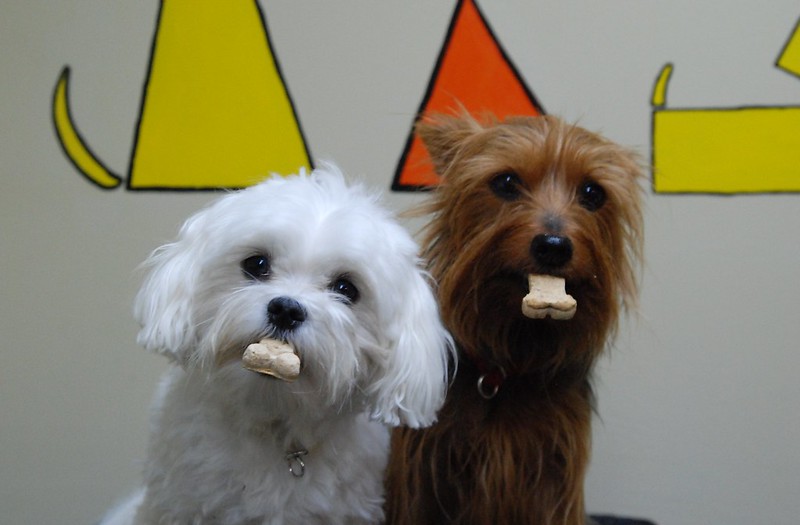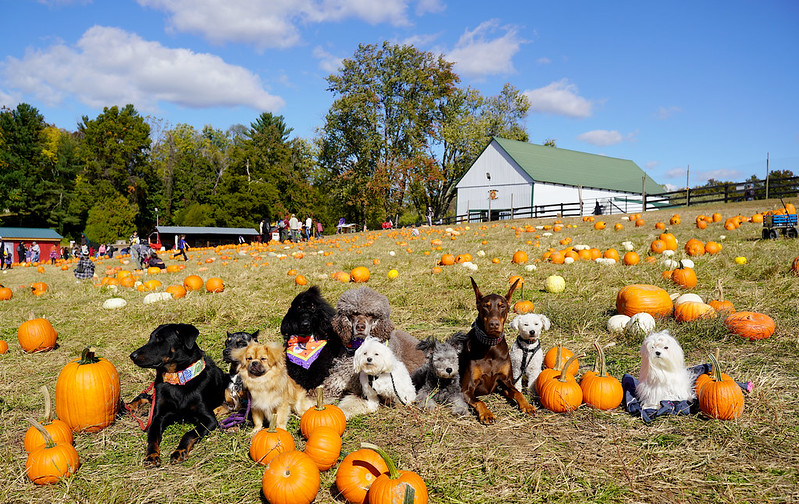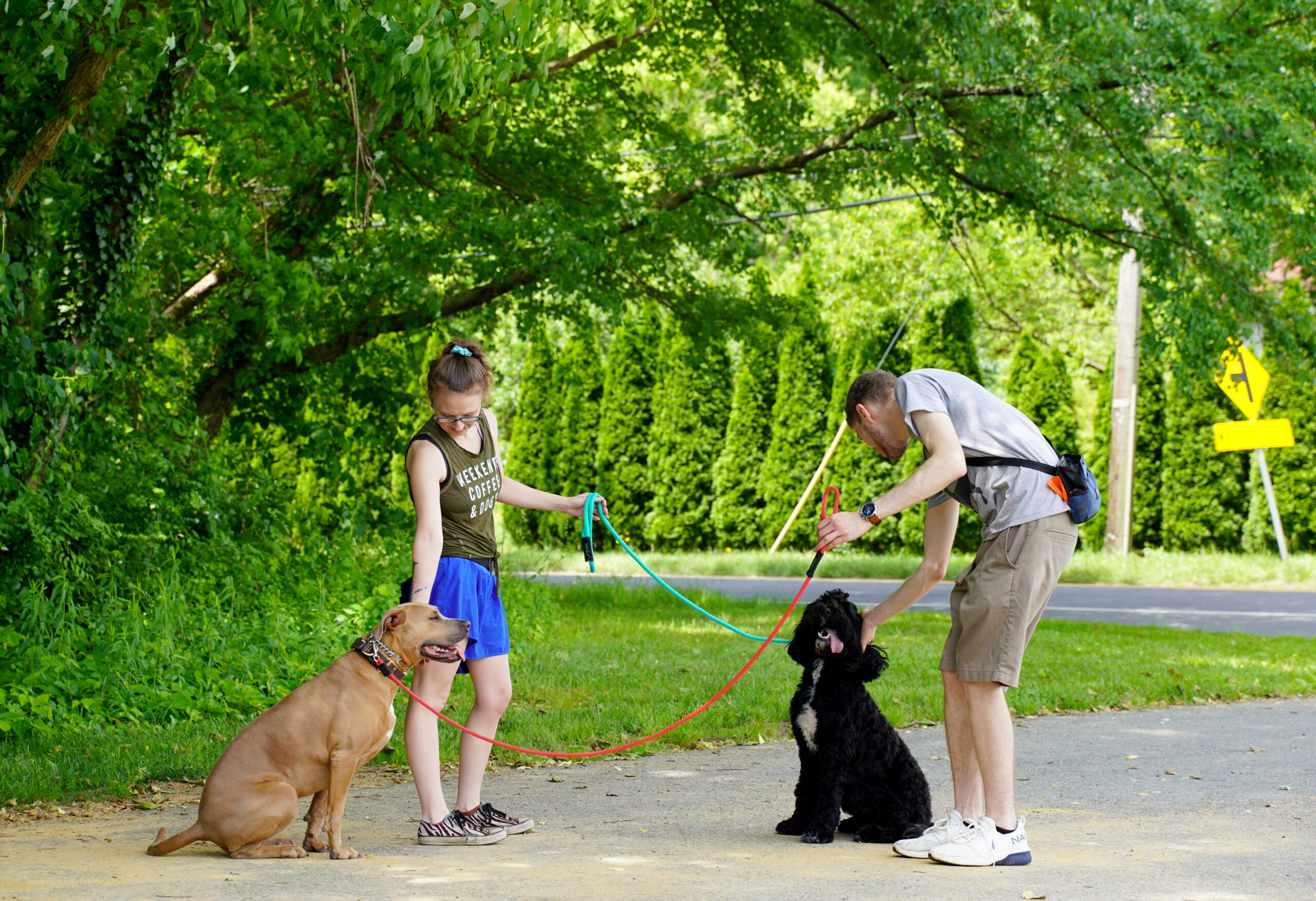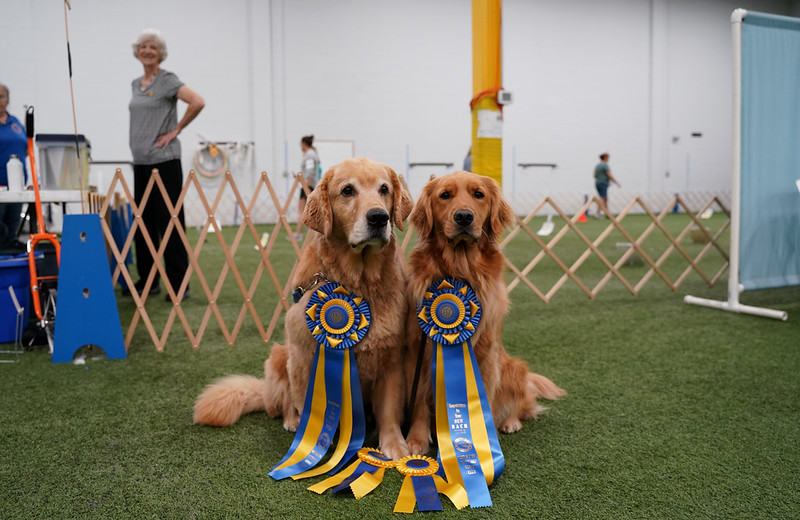Dog training is an unregulated industry. Anyone can advertise themself as a trainer and charge people money for their expertise, or lack thereof.

This creates a difficult situation for dog owners when choosing a dog trainer. Professional, scientifically sound, and safe training is essential for all levels of training. It matters for puppy socialization, basic manners, advanced obedience training, specialized trick and sport training, behavioral modification and rehabilitation work, and everything in between. We hear too often from people who are still seeking help after working with two or three or four trainers. We see the results of bad advice given, safety protocols disregarded and assumptions made.
In some cases, training from unskilled trainers just means slower results, or handicapped results. It might just mean some quirky behaviors are unresolved, or begin. It could mean that costly mistakes happen, or an oversight leads to setbacks. In other cases, it can mean serious behavior problems arise or escalate. It can mean people get hurt, or dogs get hurt.
Some dogs’ lives depend on training.
Things that are important to us when choosing (or employing) dog trainers are as follows:
- They have trained dogs of various sizes and temperaments.
- They have proven their training.
- They have start-to-finish, trained a dog to a high level.
- They have basic animal husbandry skills.
- They don’t take unnecessary risks with client dogs.
- They train their own dog.
- They seek out continuing education.
Lets dig into why each of these points are essential for a serious dog trainer.
- They have trained dogs of various sizes and temperaments.
Not all dogs are created equal. The things that motivate a Husky are not the same things that motivate a Shih Tzu. The things that a Labrador will tolerate are not the same as what a German Shepherd will tolerate. The common behavior problems we see in Beagles are not the same as the ones we see in Shetland Sheepdogs.
Training your own pet dogs is vastly different from training a high drive Malinois, or Doberman, or German Shepherd. Training hunting dogs is vastly different from training toy breed dogs. Trainers don’t need to be proven with EVERY type of dog before being trustworthy, but success with different types of dogs shows that they are able to modify their approach to meet the needs of the dog in front of them.

- They have proven their training.
Client testimonials are not enough evidence of good dog training. See the training with your own eyes. Videos of dogs they have trained behaving in public without training tools. Results from obedience trials where they have been judged by a neutral third party. Meet their dogs in person. Anyone can claim to have trained a dog, and anyone can edit a few seconds of behavior into a fancy TikTok. Get picky about the results you want to see.
- They have start-to-finish, trained a dog to a high level.
I will accept a “high level” to be on and off leash obedience, responding to the first command without corrections, management tools or lures in both familiar and unfamiliar environments (the requirements for the Novice level of obedience trials). 90% of pet dog trainers have never trained a dog to that level, and likely have no idea how to.
If they can not get there, they can not get you there. If they require multiple cues for recalls, or continuous feedback to walk down the street with their “trained” dogs, how many do you think it will take your dog? Is that a level of success that you are comfortable with?
- They have basic animal husbandry skills.
This is hard to define and hard to measure, but it should become apparent as you talk to or interview the trainer. Simple things like being able to correctly identify body parts, being able to identify if a dog is ill or injured, knowing basic grooming needs of dogs with various coat types, knowing risk factors that affect certain breeds, knowing county animal control codes and laws, etc.
Trainers are dog professionals. They should be able to talk intelligently to you about a variety of dog related subjects, and at the very least be able to point you towards the appropriate resources for topics they are lacking knowledge in.
- They don’t take unnecessary risks with client dogs.
It is not up to us to decide how much risk an owner should assume when trusting their dog to us. I preach to the Leash Free Living staff that safety precautions are the true difference between a dog enthusiast and a dog professional. Engaging in risky behavior because it is a “small chance” of danger, or one of the dog owners involved assumes that risk regularly, or because they have never seen it happen before is unacceptable behavior for a professional. A 5% chance of danger is not a lot when you are dealing with your own, singular, pet dog. When you are handling dogs all day, everyday, 5% chance becomes a much bigger reality.
I want dog professionals to move dogs safely in cars (in crates), to have good leash handling skills, to follow leash laws, to not leave dogs unattended, to take appropriate precautions for heat, to properly manage dogs with behavioral problems, etc.
Make sure you are on the same page about the level of risk you are willing to take with your dog.
- They train their own dog.
A dog trainer with an untrained dog, or a poorly trained dog either does not enjoy training, does not prioritize training, or is unskilled at training. All three of these are problematic. A trainer that doesn’t enjoy training will not be seeking learning opportunities, will not be reflecting on their training, and will not grow. A trainer that does not prioritize training will be unable to inspire their students to do the same, and unable to create training plans that are practical for families with busy lives. A trainer that is unskilled is simply unfit to be a professional.

- They seek out continuing education.
There is always more to learn about dogs and dog training. A trainer that thinks they know everything, or thinks they know “enough” is a huge red flag. What books have they read recently, what articles have they found interesting, what are they reflecting on with their training currently?
We are honored to be able to educate dogs and their owners everyday. It is a responsibility that we take seriously. We have worked hard to create a company that prioritizes staff training, personal growth and accountability, and it shows in the quality of our Instructors. When you are choosing a dog trainer for your dog, find out if they meet some, all or none of the recommended requirements above. The unserious dog trainers will become apparent when held to a standard.


